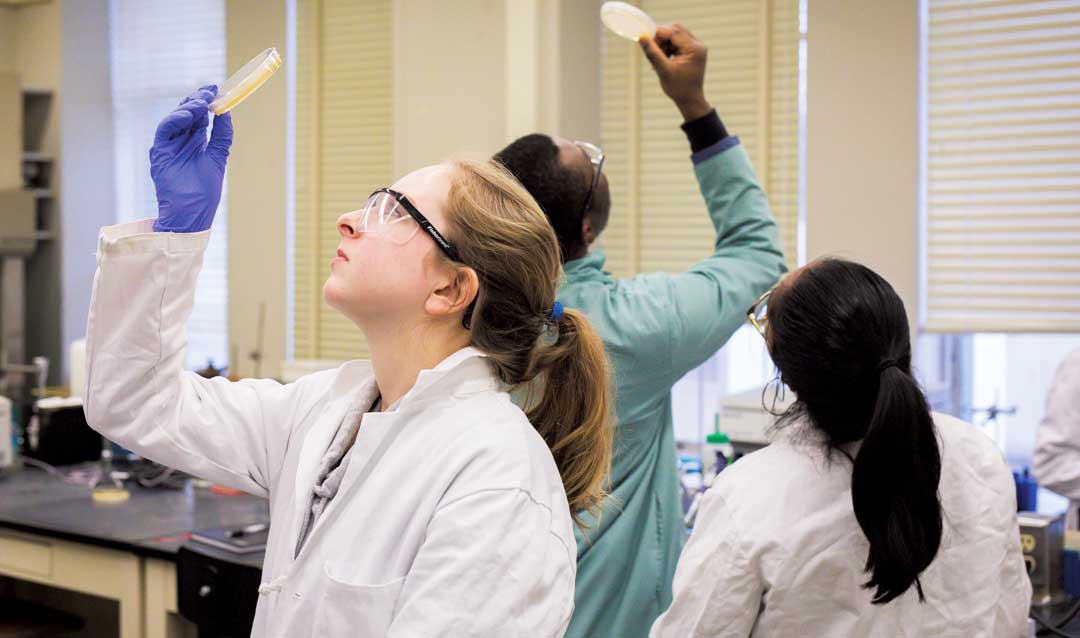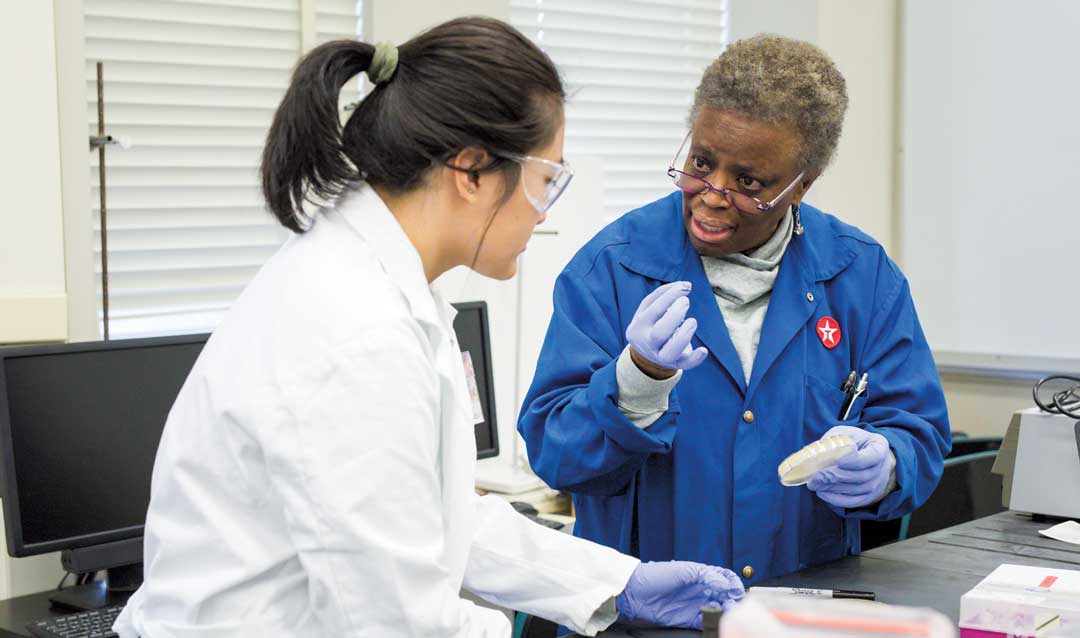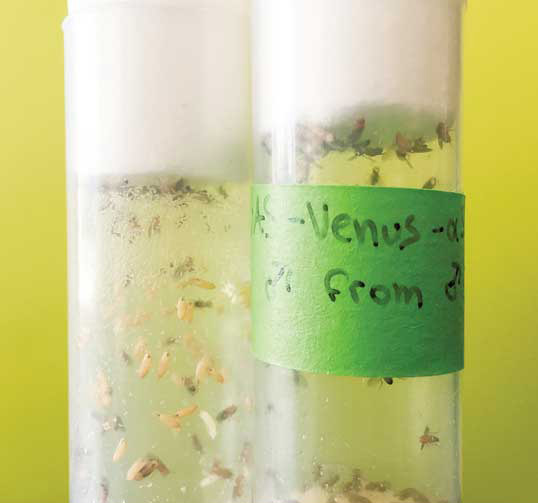When word came that Lehigh was moving to remote learning for the remainder of the spring semester, the students conducting biomedical research on soil samples in Lehigh’s SEA-PHAGES lab, like the rest of Lehigh’s students, were on spring break.
SEA-PHAGES stands for Science Education Alliance-Phage Hunters Advancing Genomics and Evolutionary Science. The program is sponsored by the Howard Hughes Medical Institute (HMMI), a philanthropy headquartered in Chevy Chase, Md., that aims to advance biomedical research and science education for the good of humanity.
The course began with students digging in soil in their backyards or elsewhere, then bringing the samples to Lehigh to hunt for viruses in the soil and progress to complex genome annotation and bioinformatic analyses. Later, they would share findings in a public database.
“Everyone in the lab had isolated a virus,” recalled Vassie Ware, professor of molecular biology and co-director of Lehigh’s HHMI program. “They were at the point where most of them, if not all of them, had gotten constant high concentrations of the virus, and they were now isolating the genomes from the virus, which are double-stranded DNA genomes. They were in the process of cutting their genomes with enzymes, so that they could determine some aspects of the characteristics of a genome.”
Initially, graduate students were going to be able to continue with their research. Ware said she, her colleague Meg Kenna and graduate student Hamidu Mohammed figured they would take two weeks to do “the last little bits” of experimental work in the lab for the undergraduate students not able to return to campus, then send them the data to analyze and assess.
“That was the plan until we were told that all the labs were going to shut down,” said Mohammed. (With Pennsylvania Gov. Tom Wolf eventually ordering the statewide closure of all non-life-sustaining businesses in the COVID-19 fight, Lehigh announced that all on-campus research would shut down by March 20.)
“At that time, Dr. Ware thought everything was kind of derailed, that there was no way we were going to get those results within some two, three-days window,” Mohammed said.
Unhappy about that prospect, he said, “I decided to see what I could do to be able to salvage the rest of the semester. I had to go in two nights. I worked throughout the night [each night from around 7 p.m. to 7 a.m. the next morning] to be able to get the DNAs that were lacking and to set up their restriction enzymes for some of them.” Kenna also helped complete the experiments.







